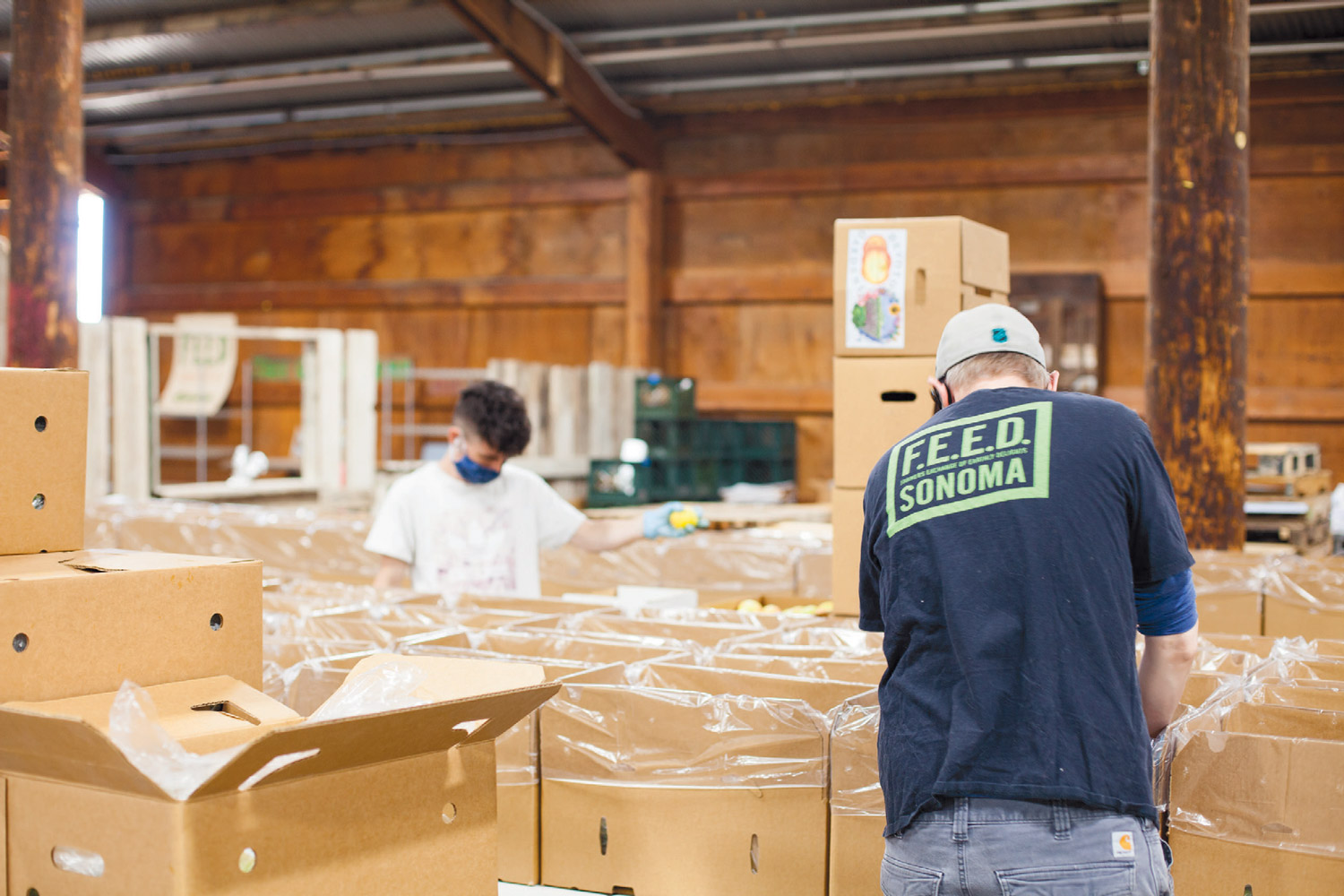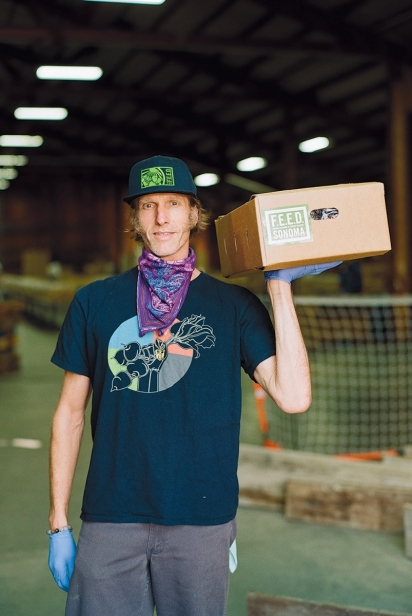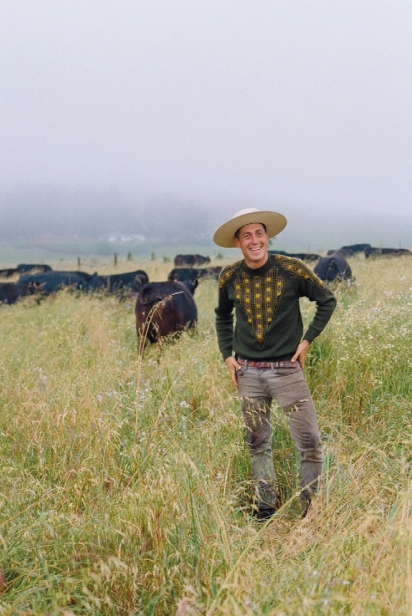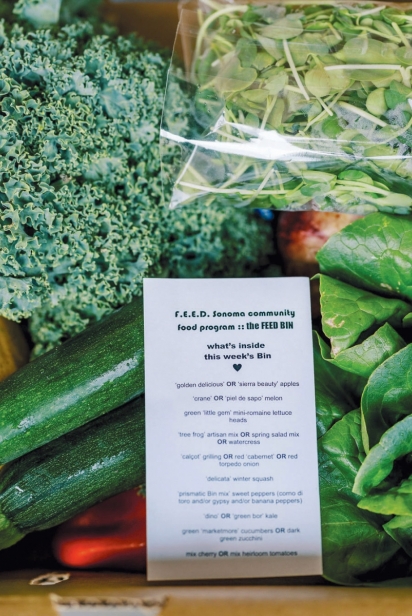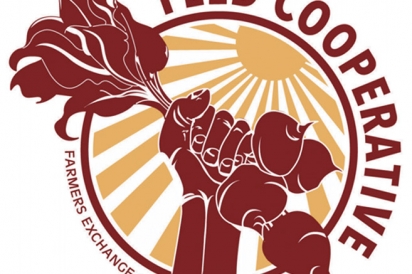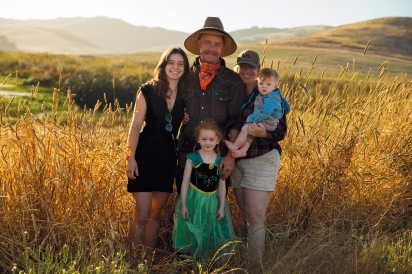Pulling Together: Winter 2021
FEED co-op nurtures strength through cooperation
Tim Page, founder of the organization Farmers Exchange of Earthly Delights Sonoma food hub— now known as FEED Cooperative—has a message for us, and it’s pretty simple: We, all residents of the North Bay, can and must play a crucial role in preserving our local small-scale regenerative farms. Further, that in doing so we will also be playing a key role in preserving he wellbeing of not only our own community, but the planet.
The philosophical and spiritual underpinnings of Page’s commitment to local ag run deep, and he readily describes his devotion to “creating communities of truth, strength and beauty that can be maintained ad infinitum for all future generations.” But when it comes to the current dire reality for North Bay farmers brought on by pandemic, as well as years of wildfires and drought, he is markedly pithy.
“We’re not asking for a lot, but we need help,” he says. Page posits that for the price of a box of local grower’s fresh produce delivered to our doorstep by FEED ($38.50 per month, to be precise), consumers will be making a meaningful contribution to sustaining organic and regenerative farms in this perilous time.
This past July, the organization became officially incorporated as FEED Cooperative, the first fresh-produce multi-stakeholder (both employees and producers are owners) co-op in California. FEED had previously operated as a “food hub,” distributing produce of local farms to markets, restaurants and corporate kitchens, but over the past year and a half, with the closure of restaurants and corporate campuses, the business pivoted toward “FEED Bins”—boxed offerings of locally grown, seasonal bounty delivered to directly to consumers’ doorsteps.
The wholesale market is coming back to life as the spread of Covid wanes, but slowly, and the FEED Bins have been the lifeblood of the newly established cooperative, keeping small-scale North Bay growers in business when, in Page’s words, “wholesale market partners fell off the edge of the flat earth.”
As the founder of FEED Cooperative’s previous iteration, the privately owned FEED Sonoma, Page has had a decade-long front-row seat watching small farms and ranches work to stay afloat. The Bay Area is populated by health-conscious consumers, has long been an international destination for high-end restaurant connoisseurs and is surrounded by equally renowned producers trailblazing paths in sustainable agriculture, so it made perfect sense to connect the agricultural and culinary dots by facilitating distribution, making sure specialized organic produce got to the right buyers. In 2011, Page developed a plan to connect North Bay growers to the robust local community of consumers and restaurants, launching FEED Sonoma that year. At the time, he was the only employee, and his garage became the distribution center.
Page, like so many in the small-scale ag community, has goals that have little to do with making a lot of money and everything to do with quality of life—meaning, creating a sustainable business model that will be able to itself survive, as it helps humans survive on this planet. His mission since founding FEED Sonoma has been to help the people prioritizing the health of humans and the planet to stay in business. From the beginning, he says, he believed that FEED Sonoma would thrive as a producer-owned cooperative, but the company would have to grow into that vision. “When FEED started in my garage, the intention was to be a cooperative. I quickly discovered that when you have a community of farmers and ranchers who are all just trying to make it work, hanging on by their fingernails, it makes it hard to start as a cooperative,” says Page. “FEED kind of had to prove itself first.”
Page initially set up FEED Sonoma as an S corporation, but he kept his eyes on the prize, expanding the reach of the company as he waited for the right moment to transition to the cooperative model he knew would make local growers stronger in the face of a food system that favors big ag.
“While I was technically the owner of FEED, we have tried to operate transparently. All farmers have had access to exactly where their food was being sold and at what price, which doesn’t often happen in a traditional distributor-producer relationship,” says Page. “Before becoming a cooperative, we had to create an asset that made sense for the farm community to own, so the journey of the last 10 years has been to establish an infrastructure.”
Two years ago, after eight years building relationships with over 80 local farmers and moving approximately $4 million worth of their produce to locations around the Bay Area, it felt like the right time. Page and a group of his growing partners began a conversation about the transition to a cooperative membership model.
“Creating the proper organizational structure required a lot of expertise,” says Page. Luis Sierra, a specialist with the California Center for Cooperative Development (CCCD), helped in the process. “CCCD wrote a grant which included helping FEED make an ownership transition to become a cooperative. We were also introduced to the team at Project Equity in Oakland, an organization focused on employee-owned co-ops. So we created a three-prong leadership team, with FEED, CCCD and Project Equity,” says Page. Another step was to recruit a FEED transition committee to take on the work of vetting data and establishing bylaws, membership requirements and documentation. The seven-member transition committee included two FEED employees and five local farmers.
Moira Kuhn, co-owner with her husband, Jesse Kuhn, of Marin Roots Farm outside of Petaluma, was part of the transition team, and when asked about how long the process took, she recalls, “Well, I was not pregnant when we first met to discuss the cooperative. Now, we have a cooperative and I have a 2-yearold, so that tells you about how long it took.” Kuhn had distributed through FEED Sonoma for almost a decade, first as an employee at County Line Farms and later as an owner of Marin Roots.
“I had worked with Tim and I trusted him. Anytime I see someone working as hard as I work, it earns my respect. And our sales pre-2020 with Tim and FEED Sonoma kept growing every year. Seeing growth anywhere in the food industry, it’s amazing—that growth is special,” says Kuhn. Joining Kuhn on the transition committee were Page himself, FEED General Manager Bryan Hohnstein, Will Holloway of Longer Table Farm, Paul Wirtz of Paul’s Produce, Jenny Trotter of Kibo Farm (featured in the Summer 2021 issue of Edible Marin & Wine Country) and Guido Frosini of True Grass Farms, a Valley Ford—based grass-fed beef producer.
Frosini points out that the transition team was a group of individuals oriented toward strengthening the agricultural community as a whole, and did not shy away from the time the endeavor would require.
“A co-op takes a long time to set up. There is no financial reward, so it takes a lot of commitment—but we are creating something that will last,” says Frosini, who was raised in Italy, a country with a long history of successful cooperative enterprises. “The cooperative also creates a culture of care, involvement and transparency—we are not culturally trained in these things in the U.S.” He describes FEED as a legal framework that allows farmers to have a say in a national food system that is vertically integrated and otherwise favors corporate agriculture. By putting distribution in the hands of farmers and co-op employees, the dollars from the farm-to-table process circulate back into the region and the flow remains in local communities.
Frosini is also a member of the recently founded Bay Area Ranchers Cooperative (BAR-C), a local meat processing cooperative (featured in the Fall 2021 edition of Edible Marin & Wine Country). He describes BAR-C and FEED as “hubs of resilience” that strengthen an agricultural system that does not only value the “pound of meat,” but also social good and environmental stewardship in the form of carbon sequestration, water infiltration, soil health and biodiversity, wildlife corridors and ecosystems—all ecological positives happening on the True Grass property. “These are all the things you cannot taste,” says Frosini.
Jenny and Vince Trotter of Kibo Farm on Sonoma Mountain began selling their produce through FEED Sonoma in 2016. Jenny joined the cooperative transition committee and is now the president of the FEED board of directors. “FEED has always been so central to the success of this community of farmers and ranchers—so important to our business in terms of how we connect with customers. But was owned privately,” says Trotter. “We wanted to be prepared if, for any reason, Tim had to close or sell. We set up and structured a system so it can continue. We built in the important pieces so it will remain secure.” Trotter and other producer members point to the social benefit of collaborating with their regional counterparts. “As a group we can come together and figure out how we can work together,” says Trotter.
Kelsey Murphy, FEED Bin coordinator and media manager, describes meetings that include things like plans for coordinated disaster response and demonstrations of crop planning applications. Kuhn of Marin Roots says being part of the co-op simply “makes you a little less alone out there.”
Today FEED Cooperative has 35 paying members who will collectively reap and divide profits at the end of the fiscal year. Unfortunately— or fortunately, depending on your lens —the FEED transition from private to cooperative enterprise was initiated just before Covid-19 arrived. The group came together in the most challenging of times, and has not experienced the exponential momentum that is possible through a cooperative, but from Tim Page’s perspective, the timing was serendipitous—and he waxes poetic about it.
“One of the goals is to create a healing path that does work in the context of challenges like drought and climate change,” he says. “This is a system of self-ownership of food systems based on growing practices on a bio-regional level—meaning we trust those who own the food system as they make the decisions about what to grow and how to grow it. We trust these growers who are also the people who are feeding our children.”
Then Page quickly shifts from the meta back into the here and now, reminding anyone and everyone that signing up for a FEED Bin can save local farms. “Purchasing the FEED Bin is not just buying food to put in your refrigerator,” he says. “It is a $38.50 investment in the regional food system, and the return is eating good food and ensuring that your farming community will actually be here in 10 years.”
Sign me up.
Kirsten Jones Neff is a freelance magazine writer who lives in a rural corner of Marin County. She writes regularly about food and wine, artisan producers, sustainable agriculture, health and environmental issues. In addition to being a regular contributor to Edible Marin & Wine Country, her work has appeared in Modern Farmer, Stanford Magazine, Marin Magazine, Ms., Believer Magazine and numerous other print and digital publications. KirstenJonesNeff.com or @ fullbloomday.


